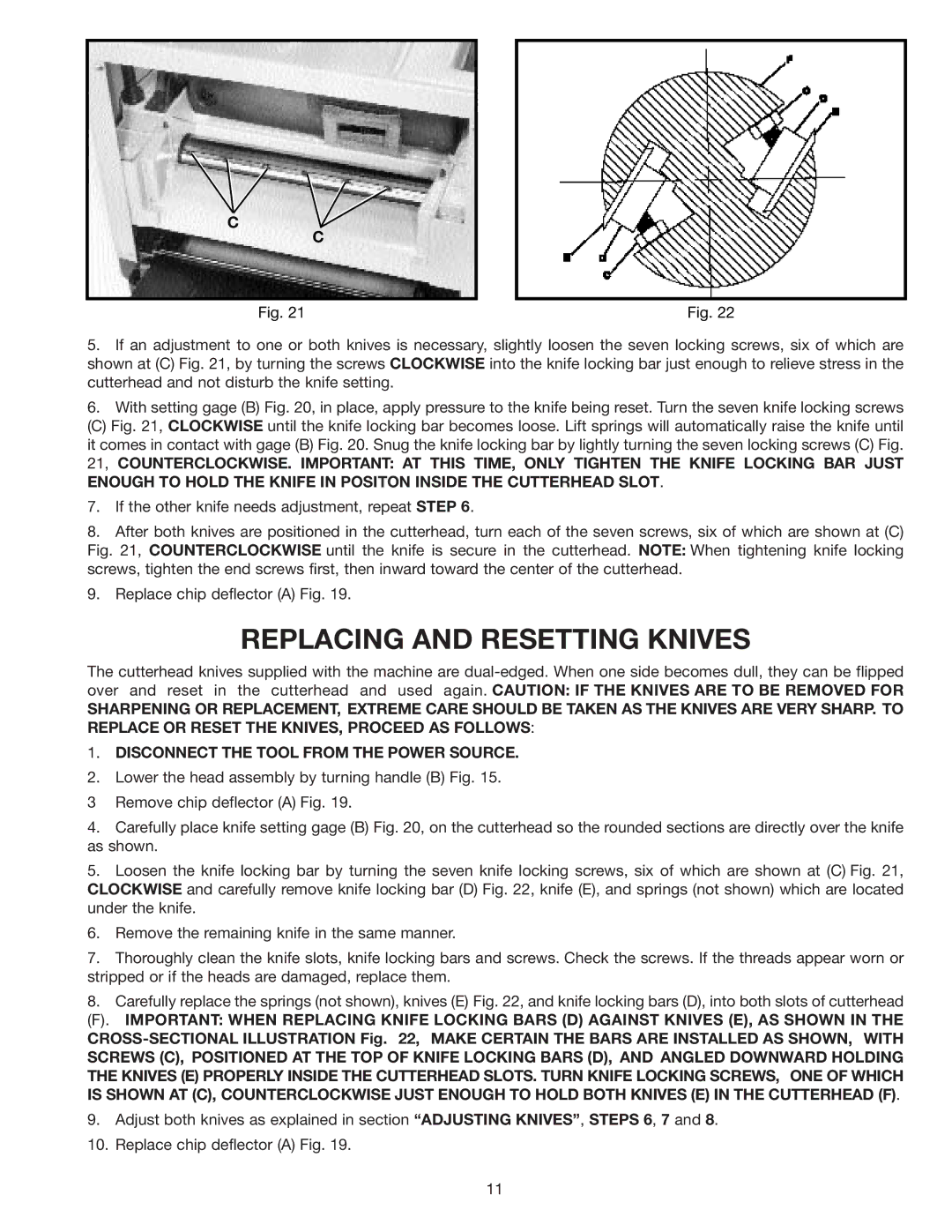22-540 specifications
The Delta 22-540 is a powerful and versatile woodworking tool designed for both amateur and professional woodworkers. Known for its robust construction and reliability, this 13-inch thickness planer features a host of technologies and characteristics that make it a standout choice in any workshop.At the heart of the Delta 22-540 is its powerful 15-amp motor, which delivers impressive performance and allows users to tackle a range of materials with ease. The motor runs at a speed of 20,000 RPM, enabling smooth and efficient operation for various wood thicknesses. This ensures that users can achieve a uniform finish and consistent results every time.
One of the most notable features of the Delta 22-540 is its precision-ground, cast iron table. This heavy-duty tabletop provides a stable work surface that minimizes vibration during operation, which is essential for achieving a smooth finish. Additionally, the table has a dual adjustment system that allows for easy height adjustments, ensuring users can set the thickness precisely to their requirements.
The Delta 22-540 is equipped with high-quality knives that are easy to replace, ensuring longer tool life and enhanced cutting performance. The knife-edge design optimizes wood chip evacuation, which not only improves cutting efficiency but also reduces the likelihood of snipe, making it an ideal choice for users concerned about maintaining the quality of their wood surfaces.
Safety features are also a priority in the design of the Delta 22-540. The planer comes with a blade guard that protects users from accidental contact with the cutting blades. Furthermore, the onboard dust port promotes a cleaner workspace by connecting to a dust collection system, capturing debris and chips efficiently.
In terms of portability, the Delta 22-540 is designed with a sturdy yet lightweight frame, allowing for easy movement around the workshop. Its compact size makes it suitable for small spaces without sacrificing performance or capability.
Overall, the Delta 22-540 thickness planer combines power, precision, and user-friendly features, making it an excellent addition to any woodworking setup. Its blend of advanced technologies, durability, and safety characteristics ensures that woodworkers can complete their projects with confidence and ease, elevating their craftsmanship to the next level. Whether you are flattening rough lumber or bringing life back to old wood, the Delta 22-540 stands out as a reliable tool to achieve high-quality results.

